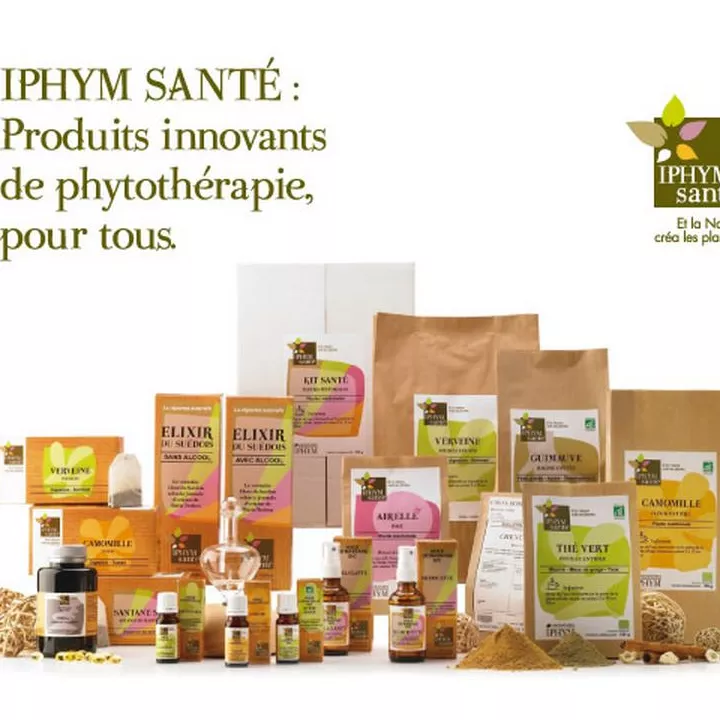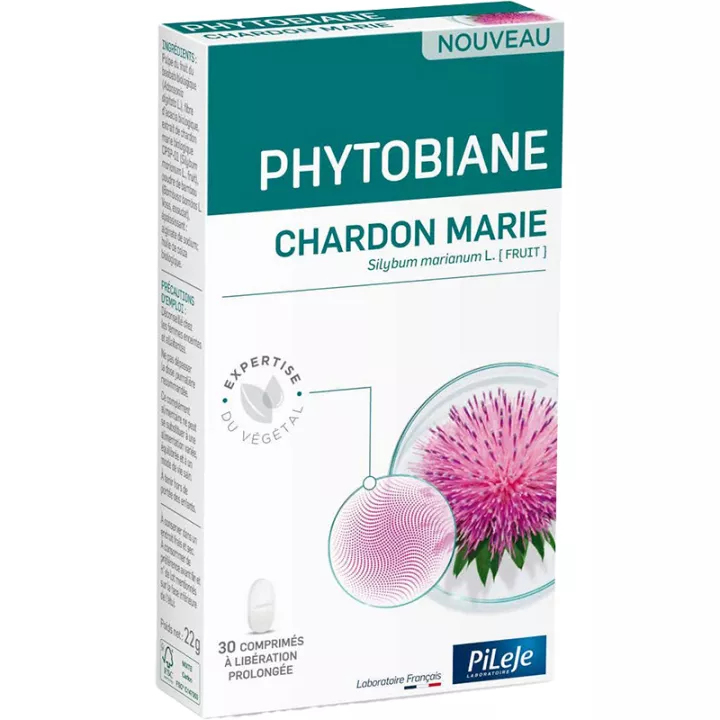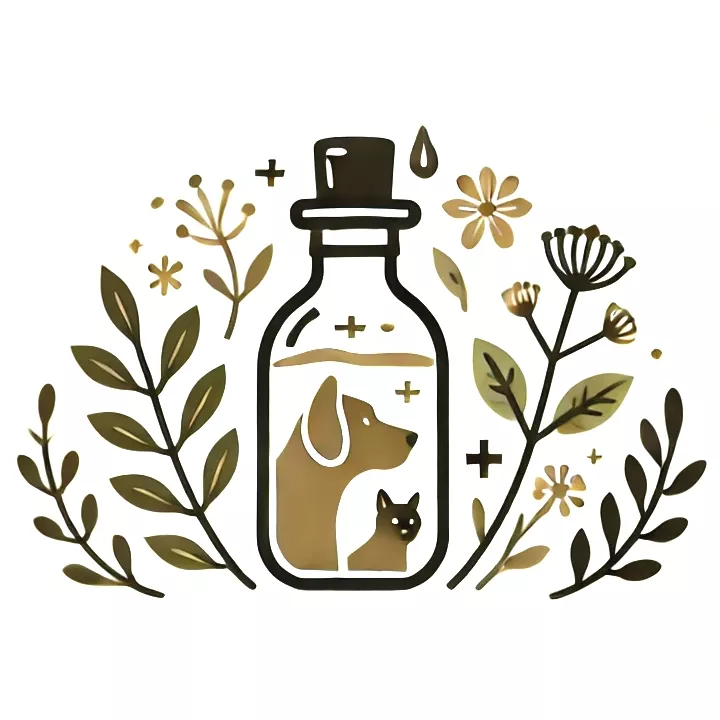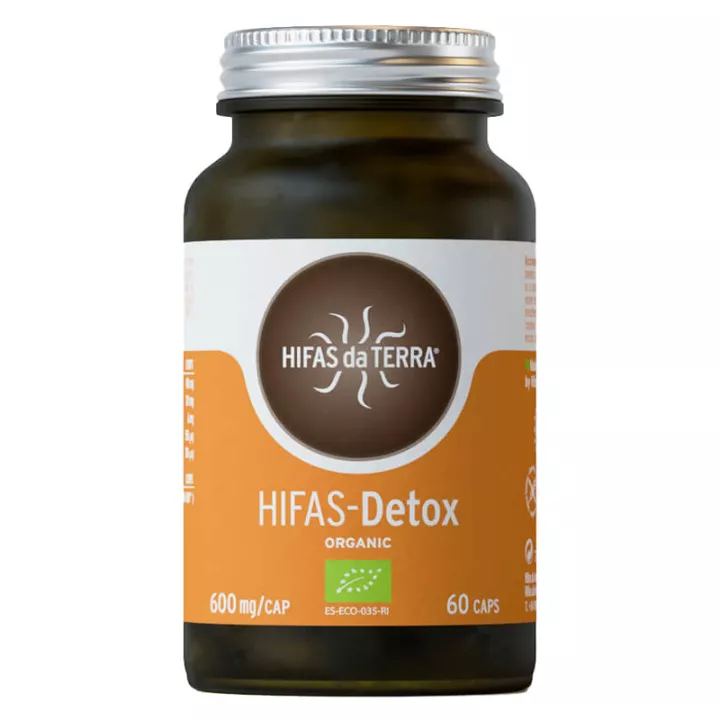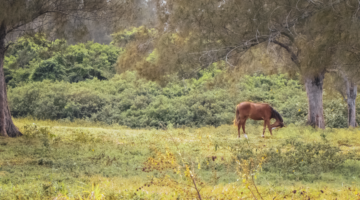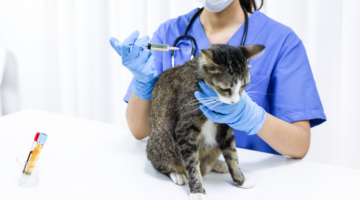What is milk thistle used for?
Milk thistle, known scientifically as Silybum marianum, is a medicinal plant that has long been prized for its beneficial properties on digestive and liver health. Traditionally used to relieve digestive disorders linked to insufficient bile production, milk thistle is particularly appreciated for its ability to support liver health. Its extracts, rich in silymarin, have been the subject of recent research into their potential in the treatment of acute or chronic hepatitis, although the results are still discordant.
In 2012, European health authorities, including the European Food Safety Authority (EFSA), ruled on certain health claims for products containing silymarin. After review, it was ruled that these products cannot claim to improve milk production in breastfeeding women, a claim now prohibited.
Milk thistle, native to the Mediterranean Basin and North America, is distinguished by its prickly leaves marbled with white and its bright pink flowers. Historically, its leaves and buds were used in food, but in phytotherapy, it's mainly the dried fruits that are harvested. These are recommended to stimulate bile production and prevent the formation of gallstones. In addition to conventional treatments, standardized milk thistle extracts are also available to treat various liver disorders.
Milk thistle offers a multitude of health benefits, mainly thanks to its active ingredients, including silymarin. Here are some of its main indications:
- Hepatoprotective: Silymarin acts as a cell membrane stabilizer in hepatocytes, reducing the absorption of toxins such as alcohol and certain drugs. It improves cell regeneration, offering valuable protection against hepatitis and cirrhosis.
- Detoxification: By increasing protein synthesis in the liver, milk thistle helps detoxify the body, reinforcing the body's natural defenses against external aggression.
- Anti-inflammatory properties: By attenuating certain inflammatory reactions, milk thistle helps relieve a variety of ailments, from joint pain to chronic digestive disorders.
- Protection against hepatotoxicity: Used to prevent the harmful effects of the deadly fungus amanita phalloides, milk thistle is an effective antidote when taken as a preventive measure.
- Support in cancer treatment: Studies suggest that silymarin may reduce the toxicity of chemotherapeutic agents and promote liver cell regeneration, with promising anti-tumor effects.
- Improved general well-being: as an adaptogenic plant, milk thistle helps regulate various bodily functions, contributing to better emotional and physical balance.
We also offer Chelidoine Plante Coupée from the Iphym laboratory, at the best price in our online pharmacy.
How to use this plant?
To prepare a decoction, use a dose of 3.5 g of milk thistle for 150 ml of water. Heat the mixture for half an hour, then filter. Consume three 150 ml doses of decoction a day to benefit from its optimal effects.
Give your opinion on the advice for use and dosage of milk thistle with our partner Verified opinions after your purchase.
Precautions for use:
It's important to note that people allergic to plants in the Asteraceae family, such as ragweed or chamomile, should avoid taking milk thistle. This product is also not recommended in the event of an acute attack of biliary obstruction (stone attack). Side effects are generally minor, including mild gastrointestinal disorders or allergic reactions in sensitive individuals.
What is it made of?
Latin name: Silybum marianum L.
Family: Asteraceae
Common names:Wild artichoke, silver thistle, marble thistle, Notre-Dame thistle, white thistle, Notre-Dame milk, sibyl of Mary (Silybum comes from the Greek silybon, the name of a thistle whose leaves were eaten; marianum, in memory of Mary who dropped milk on the leaves in an attempt to protect Jesus from Herod's soldiers).
Parts used : Whole plant
Origin: Spiny biennial herbaceous plant that grows in uncultivated areas. Found in southern Europe, North Africa, America and Asia.
Active ingredients: Flavonoligrams, flavonoids, phenolic derivatives, totopherol and sterols, lipids, proteins, sugars.
Presentation: Available in several formats: 100 g, 250 g or 1 kg, to suit your needs.

